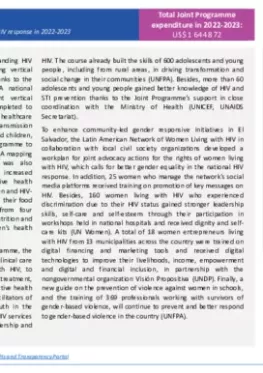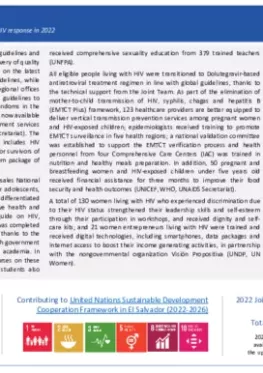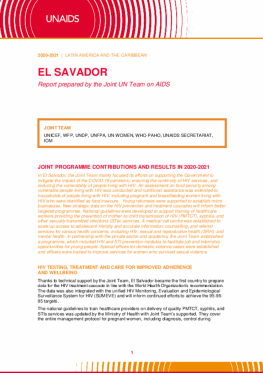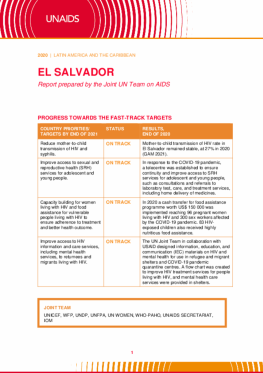|
El Salvador
El Salvador continued to make progress towards expanding HIV services, with considerable efforts towards eliminating vertical transmission of HIV, syphilis, chagas and hepatitis B thanks to the Joint Programme’s strategic support in 2022-2023. A national validation committee was established, and a joint vertical transmission programme assessment mission was completed to support the elimination validation process. A total of 123 healthcare providers improved their capacity to deliver vertical transmission prevention services for pregnant women and HIV-exposed children, and antiretroviral drugs were procured by the Joint Programme to improve treatment services among women and children. A mapping of facility-led maternal and child health services was also completed, while around 150 epidemiologists gained increased knowledge in vertical transmission surveillance in five health regions. In addition, 50 pregnant and breastfeeding women and HIV-exposed children received financial assistance to improve their food security and health outcomes. Health personnel from four Comprehensive Care Centres (IAC) was also trained in nutrition and healthy meals preparation to improve pregnant women’s health outcomes (UNICEF, WFP, WHO, UNAIDS Secretariat).





